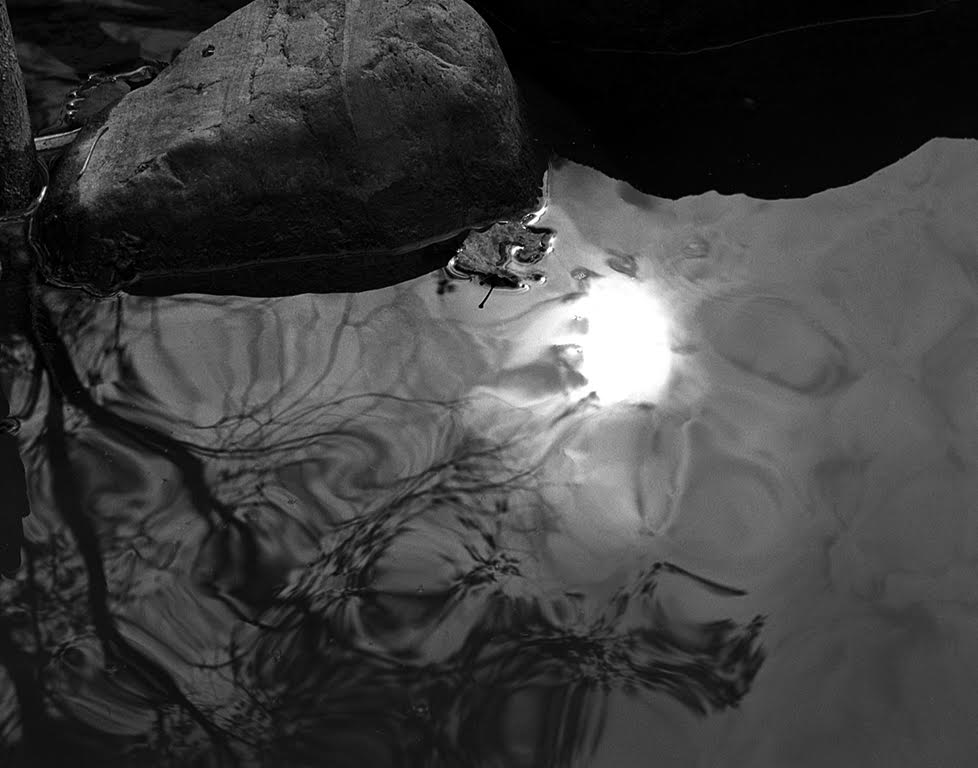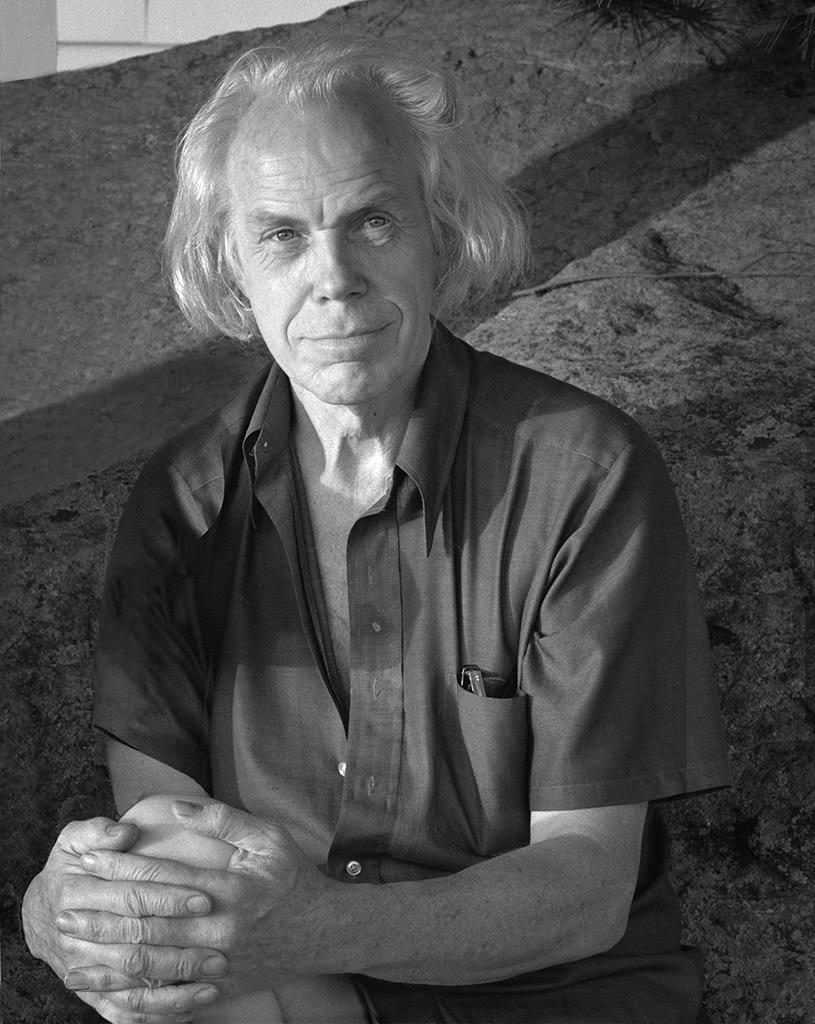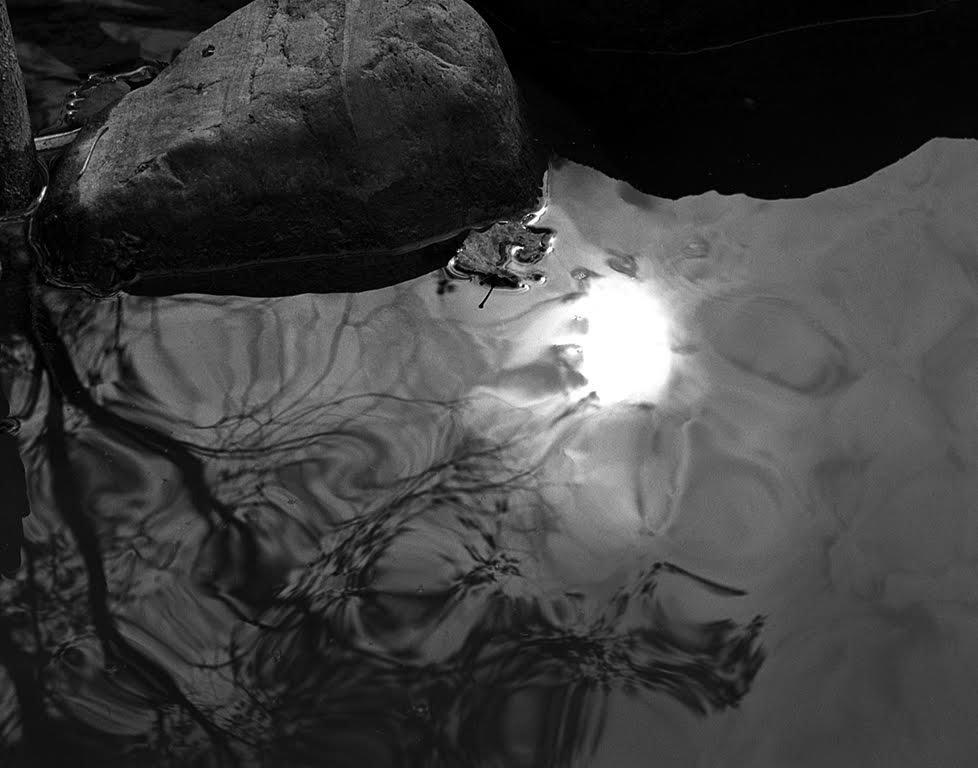
“Above all, you must feel the need to know yourself. You are something and you don’t know it. You have to acknowledge that you do not know who you are, and that you need to know it. This opening is the most important step.”
—Jeanne de Salzmann
On my college campus in the late Spring of 1970, I witnessed the events surrounding the deaths of four Kent State students from National Guardsmen’s bullets. Something changed in me. I was snapped out of complacency, sharply distanced from my comfortable middle-class normalcy in one shining though painful moment. I was aflame, and opened to an elusive longing. I began to search for meaning and direction in my life, and began, through art, to experience hints of a divine order and an implicit, larger intelligence. Much of this was the result of my yearning for a deeper experience of my own humanity after witnessing the events of Kent State and the unnecessary death of friends in Vietnam. I was only twenty years old and these experiences penetrated deeply within me.
During that emotionally-charged Spring, somewhere from deep within a voice proclaimed with resolute authority: “You must meet Minor White.” Huh!? I said, though I felt as if a god had spoken directly to me. Minor White was one of the seminal photographers of the mid-Twentieth Century, who attempted, sometimes awkwardly and sometimes gracefully, to integrate the experience of making and viewing art with a genuine inner practice. A year before, Minor had published his definitive autobiography of words and images: Mirrors Messages Manifestations, which impressed me deeply. At first, as with many true messages from within, I resisted that voice and rationalized that Minor White was a famous photographer, and what gave me the right to call him and request his help. Plus, I was scared to death of my own shadow in those years, much too fearful to find the courage for that outrageous step. But one day, in spite of myself, I gathered my best friend with me around the telephone, and with trembling fingers and a barely audible voice, I called Minor. To my great surprise, with his resonant booming voice and a gracious, welcoming tone, he invited me to visit him at his home in Boston later that same summer.
A year earlier, I had begun to search and study the world’s great teachings, reading voraciously sacred texts and material from the expanding human potential movement. The Tao Te Ching, Carlos Castaneda, Krishnamurti, The Bhagavad Gita, Zen and Buddhism, Aldous Huxley, C.G. Jung, and modern psychology. Little escaped my hunger. But nothing felt right to me. I was not Asian, in fact had a distinctly western outlook. Yet contemporary psychology seemed too narrow, too mechanistic, and did not address my nascent experiences of something miraculous at the core of our existence. Having been born and raised a Catholic, I still considered myself a Christian though I no longer went to church or sought the dogmatized teachings of Christianity. However, in lieu of anything better (this was long before Buddhism and other Eastern teachings had made a deep penetration into western culture), I joined an Edgar Cayce study group with my friend Brian, a poet and fellow seeker. There we met Tim, a sixtyish-year-old seeker who manifested intelligence and grace, humility and an unusual openness. Tim had just discovered a book—that impressed him greatly enough to order a case of them—and asked for our assistance in its local distribution. After reading the book, we were delighted to oblige his request.
The book was A Study of Gurdjieff’s Teaching by Kenneth Walker. In this book, I found strong echoes of all the sacred and ancient traditions that I had been nourished by. And I found something deeply related to and intertwined with—yet that greatly surpassed—the insights of modern psychology. Here was the power and freshness of a modern voice that gave dimension and timeliness to the ideas contained within the world’s great teachings. I sensed—or perhaps intuited—a comprehensive living, organic teaching, one part intricately related to all the other parts, and one that spoke to me in regions of myself that I could only feel the hints of at that time. Gurdjieff—that single name became a beacon of light and a potent magnet for my youthful strivings. Brian and I decided right then and there, no matter what it took, to travel to the other side of the world if necessary and find a Gurdjieff school. Kenneth Walker alluded to groups in locations such as London and Paris. By the summer of 1970, Brian and I were meeting nightly and making preparations for a trip into the unknown to find such a group. We surmised that the starting points for our search might be the European cities that Walker wrote about.
Meanwhile, in the Fall of 1970, I began my formal photographic studies with Minor White, and one of his close associates, Nicholas Hlobeczy in Cleveland. I had no idea—not even a clue—at that time that Nick and Minor were already group leaders in the Gurdjieff work, and had been students of the Gurdjieff teaching for many years.

Over time, Nick began to recommend books to me, notably Mount Analogue and In Search of the Miraculous, and gradually revealed the depth of his involvement in the Work. Early in 1971, after satisfying his many questions about my interests and my intent, he invited me to meet Thomas Forman, a direct student of Gurdjieff’s who was responsible for the groups in Cleveland. The meeting with Mr. Forman was notable and served to pique and deepen my interest in the work. I joined the groups in early 1971, and my friend Brian joined not long thereafter. We learned one valuable lesson; that with strong enough intent and with a willingness to take substantial risks to our complacent, comfortable lives, we will attract what we genuinely need for our growth and development.
For the next few decades, the Work was central to my life. I had the good fortune to meet and work with—to receive the wisdom of—many of the still-living direct students of Gurdjieff. One by one, they were getting old and their health was failing, though their vision and being remained expansive and vital. Though I was very young, and had barely begun to define the direction of my outer life, I intuited that this was the time, that this unique opportunity would not last forever. Without exception, I perceived a presence, an inner intelligence, a radiation of finer energy, a connectedness that was evident in these people who had devoted much of their lives to receiving and transmitting Gurdjieff’s teaching. I made great efforts (and many sacrifices) to be available to their insights, to place myself under their guidance during this time of my life. These remarkable men and women have since passed on.
What Gurdjieff calls the magnetic center represents an inner formation that helps orient us in the right direction, toward what can serve our individual evolution and inner development. Our search is often born from contact with certain kinds of influences—books that may help show the way, other people that touch us in a deeper fashion, inspiring works of art, and one’s own intuition—that, upon reaching a certain force, will attract help to the seeker. Influences that derive from a conscious origin have a different quality, a unique flavor, that resonates with the seeds of consciousness within oneself. I think of it as a magnetizing force that attracts us to what we genuinely need—and draws what we need to us. It is a reciprocal movement. But, especially in these times, there are dangers at every step of the way. Is this teacher authentic and truly connected to a source of knowledge? Has he or she sufficiently traveled the inner journey, enough to really help us, and not distort or injure our search? Discrimination is essential. And rigorously following the dictates of one’s intuition, and listening to the still voice of our inner senses, is a central challenge in our search. The smorgasbord of spiritual teachings today allows for all manner of distortions and dilutions of great knowledge.
The magnetic center must work with a finer quality of energy than is found in our usual fragmented states of being. The word magnet is very accurate here. We find a resonance with a teaching, a book, a teacher, a work of art that corresponds to something finer in ourselves that we wish to know better and to develop. However, the danger of our search being usurped by our ego is not only ever-present but is prevalent in contemporary times. There is much evidence of a wrongly formed magnetic center or the type of seeking that endeavors simply to become a better, more effective person. Ken Wilber knows this type of spiritual seeking as the “ego in drag.” The desire for mere self-improvement on an ordinary level, the hypnotic seduction with trance-like states found in shamanism and other exotic rituals, the dangerous work of prematurely opening the “chakras,” the new-age impulse towards abundance and the belief that everything is “divinely perfect,” and that no part of us could possibly be out of step with the divine plan—these are all common manifestations of Chögyam Trungpa’s famous phrase: “spiritual materialism.”
American materialism has affected the spiritual path deeply—manifesting in seeking magical states, instant gratification, and a shallow, results-driven spirituality. Genuine search places us in the eye of the tiger. It is raw and an anathema to our ego. It demands rigor and discipline, and the striving towards impartial self-observation which brings in its train a certain kind of suffering and discomfort. Genuine spiritual growth is fundamentally transformative, not merely a rearrangement of our personalities or an increased ability to meet the demands of life. It is learning to serve a different master, our search for higher consciousness and for the awakening of conscience, and placing our ego or our conditioned personality in a secondary, not primary, role.
Awakening exacts a price, and we pay in different ways at different times, at different stages along our path. The first payment is to follow the dictates of our genuine search, to accept the inevitable struggle and discomfort of turning towards our inner life. We are asked to place our ego and conditioned personality in question, not to blithely follow its insistent voices, but to open ourselves to the deeper impulses that lead us towards the influences that we need, whether in the form of books, people, or a wisdom teaching. A certain leap of faith is required here, one that we can only resolve from looking deep within. The seeker in us is authentic; we know by the “taste” of certain influences what it needs, and we must open to those influences and begin to allow them to act on us, like a young plant seeking water and air. And we must stay in touch with the “inner taste” of the influences that we allow into our being. Impressions are food, and to some degree, we are what we eat. Where rigor and discipline is required, is to maintain this discriminating faculty that knows from within what our nascent real selves need for their growth and evolution.
I am deeply indebted to all the living and no-longer-living teachers who have helped show me the way. Their presence and their words reverberate long beyond their lifetimes. René Daumal offers a glimpse, in Mount Analogue, of the reciprocal action of the magnetic center, its influence on our search, and its resonating force in attracting the help that we need for growth of being and awakening.
“By our calculations, thinking of nothing else, by our desires, abandoning every other hope, by our efforts, renouncing all bodily comfort, we gained entry into this new world. So it seemed to us. But we learned later that if we were able to reach the foot of Mount Analogue, it was because the invisible doors of that invisible country had been opened for us by those who guard them. The cock crowing in the milky dawn thinks its call raises the sun; the child howling in a closed room thinks its cries open the door. But the sun and the mother go their way, following the laws of their beings. Those who see us, even though we cannot see ourselves, opened the door for us, answering our puerile calculations, our unsteady desires and our awkward efforts with a generous welcome.” ♦
